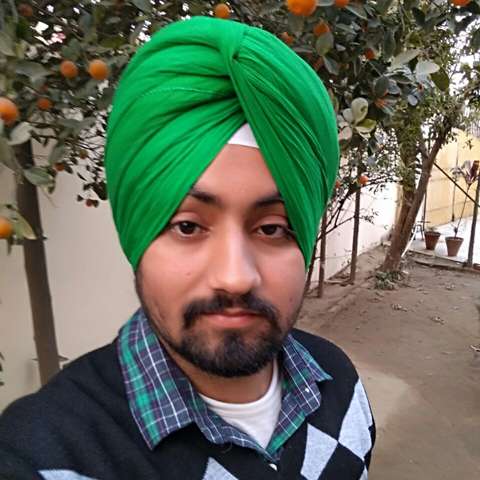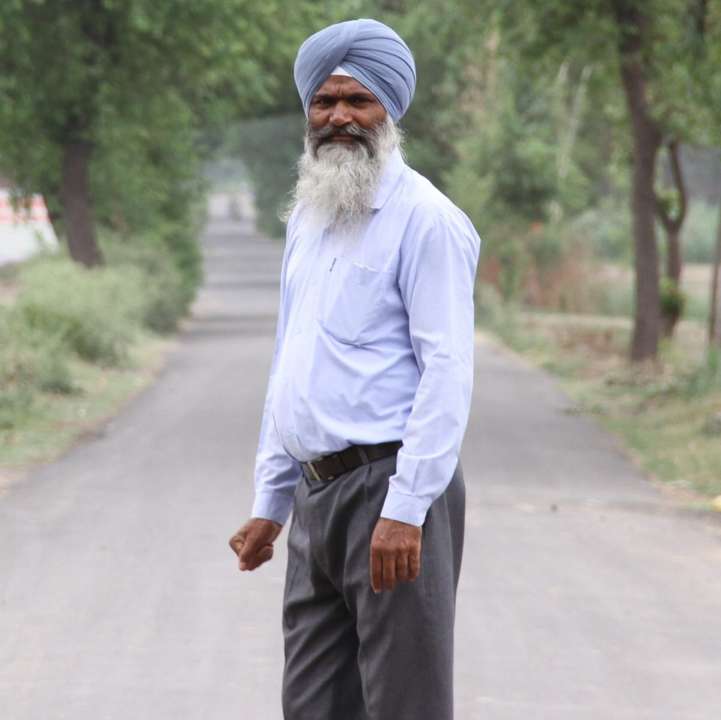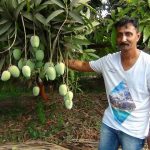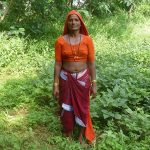How A Farmer’s Hard Work & Passion Led the Yellow Revolution in the Gurdaspur District of Punjab
Punjab is a state where the dominance of wheat and paddy cultivation is greater as compared to the other crops because it generates a great level of profit to the cultivators. And generally, the farmer also prefer to invest in wheat and paddy farming because of the positive profit results. But there is a farmer who is different from the others, and he thought of initiating a change in the farming culture by starting the Yellow Revolution.
Mr. Gurdial Singh a turmeric farmer from Sallopur village in Gurdaspur district, has three roles by profession- a farmer, an entrepreneur and a turmeric cultivation trainer. Today he is cultivating turmeric, processing it, marketing his product himself and selling it in the market; he is not dependent on the third person to sell his produce. He chose a different path from the rest of the farmer to make his own identity in the society. At present, his yearly turmeric production is between 1500 to 2000 quintals and he is the king of Green Gold Spice Group.
Success is not achieved so easily, a person has to do hard work, face difficulties and hardships and sometimes losses also occurs. After facing all these adversities, with the spirit of not giving up and moving forward in the same direction, helps in achieving success. Gurdial Singh’s farming story is similar. After passing his matriculation he tried for government jobs, but getting failed after many attempts he decided to go hand in hand with his father to support him in farming. From the beginning, he was never satisfied with the conventional farming methods, because a farmer isn’t able to get the right worth of his crops grown from his hard work. So, in 2004 he experimented with turmeric cultivation on a small land with the guidance of Horticulture Department. And along with that he also started processing turmeric into turmeric powder but without using any machinery.
Processing turmeric into turmeric powder manually was very backbreaking. So, after the Horticulture Department suggestion, he installed mechanized processing unit for turmeric powder production. Further, he also invested in modern farming machinery, such as tractor, trolley, leveller, tiller etc. And all these steps taken by him has increased the production of raw turmeric from 60 Quintals to 110 Quintals today. By putting all these stepping stones together he started his own turmeric processing plant in 2007 and named it as Green Gold Haldi Processing Plant and Haldi Green Gold Spice is one of the products of this plant. His family including wife, two sons, one daughter, and everyone plays a major role in all the activities related to the processing of turmeric such as washing, boiling, polishing and grinding. He also has 4-5 labours working for him in the processing plant and all the packaging, sealing and stamping work is done by the equal contribution of family members in his home. After setting up all the machinery system there are still some minor problems that he is facing. Out of all the problems, not having enough space for drying up the boiled raw turmeric is the one.
The reasons behind why Gurdial Singh chose turmeric cultivation are:
• It needs less irrigation, in the time period between sowing to harvesting (8-10 months), irrigation is done only 10-12 times.
• Moreover, as turmeric is an antibiotic in nature, so the turmeric crop do not seem to catch any kind of disease from any other plants or crops, due to which less chemicals and sprays are used in turmeric farming.
• He invests around 35000 in one acre of land, and in one acre of land he sows 5 quintals of seeds and potato digger can also be used for turmeric harvesting.
• He sows turmeric in 6-7 acres of his total land, and after sometime, he rotates the crops, due which the land in which turmeric was cultivated becomes more fertile.
So, if a farmer is interested in turmeric farming then he can also start with it easily. The total machinery cost invested by Gurdial Singh in setting up the turmeric processing plant was 4.5 lakhs. He takes all the suggestion for training, types of turmeric seed from Punjab Agriculture University and also gets 25% subsidy on “Green Gold Processing Unit” as per NHM guidelines by the Horticulture Department of Punjab. For his revolutionary work and the different path he has achieved many awards and appreciations, some of them are listed below:
• Udmai Kissan Award 2014 from CM of Punjab
• Datawid Kissan Award 2015
• Awarded by P.A.U. Ludhiana and Horticulture Department Punjab at Chappar Chiri
The way he is rising and advancing his farming methods, these are just a few awards that he has received and in future, he is going to receive many more.
Apart from turmeric farming and processing it into powder, he is also helping other fellow farmers of his village by giving them the right guidelines for turmeric farming. Today, almost 60 farmers are associated with him and he gives free training to all of them. He helps other farmers by purchasing raw turmeric from them at the right price. Apart of sowing turmeric in his own land (6-7 acres), he also helps his other friends by sowing turmeric in their fields. To support all his work through marketing and promotion, NABARD supports them by giving them space in different exhibitions, events and Kisaan Mela under the Farmer Producers Organizations.
Other than turmeric cultivation and processing, Gurdial Singh has also invested in beekeeping business. He started it in 2000 from just 5 boxes and with the time and investment today he has 100 boxes. He has employed labours for beekeeping to manage it properly. In the rest of the land, he grows lentils (green mung beans), eggplant, ladyfinger, wheat and paddy for his own home use. His future plans for Green Gold Haldi Processing Plant is to advance the packaging process by using hi-tech machines.
According to his thinking, if a farmer wants to earn good profit from his farming and do something great from his harvested crops, then he has to eliminate the middle man. Farmer has to start process his crops himself and sell it himself in the market. All these things need great effort, energy, and enthusiasm. Otherwise, if the farmer feels ashamed of selling his produce himself directly in the market then he cannot earn the profit and will remain at the same level. Furthermore, if a farmer is interested in turmeric cultivation then he can refer the experts of PAU or other successful turmeric farmers because experts can tell better about the types of seeds, and types of land required, and other necessary conditions.
MESSAGE BY GURDIAL SINGH
“According to the current needs, conventional farming ways cannot help the farmer. The farmers need to diversify if they want to earn well from their harvested produce. From modern farming ways, even a small farmer can also achieve success. Today, food processing is the need of the hour, so every farmer should start thinking in a different way. Farmer has to understand that there is no need of middleman to sell their product in the market. They can also do it on their own.“








